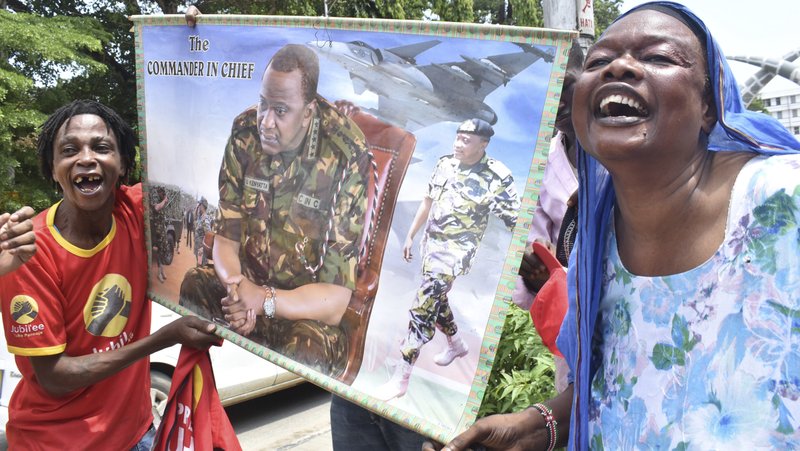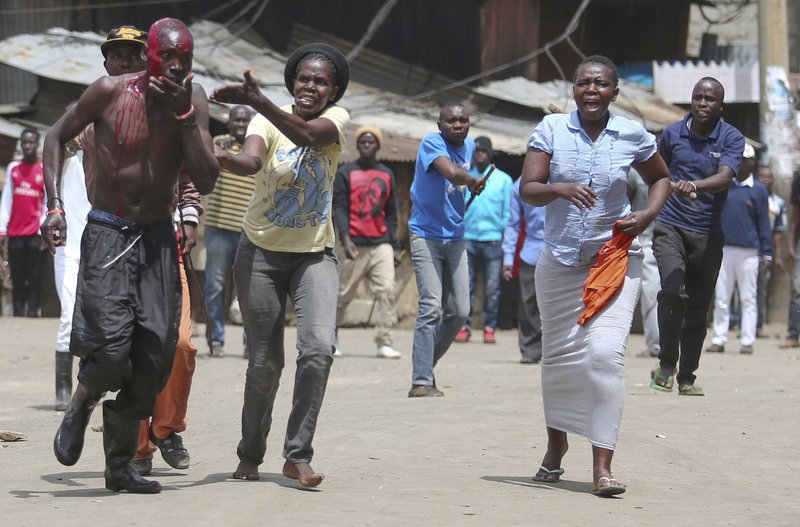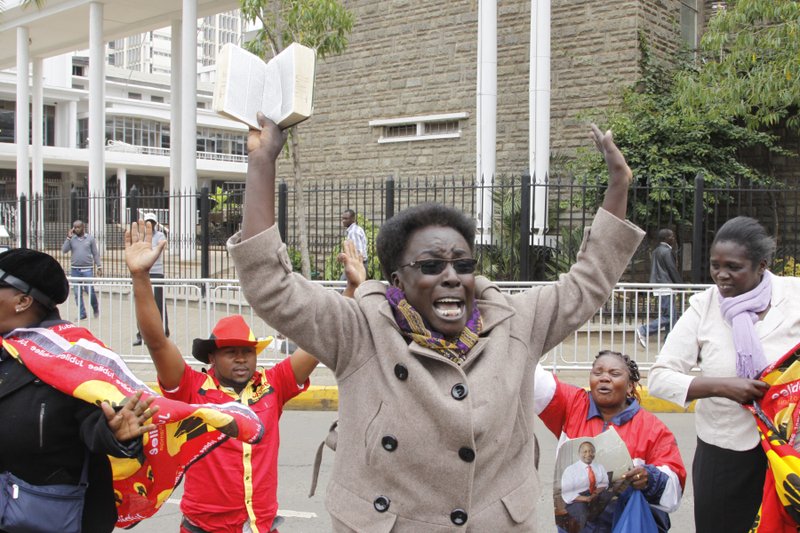
Supporters of Kenyan President, Uhuru Kenyatta, holding his poster celebrate in the coastal town of Mombasa, Kenya on November 20, 2017. (Photo: AP)
Nairobi — Kenya’s Supreme Court on Monday upheld President Uhuru Kenyatta’s re-election in a repeat vote that the opposition boycotted while saying electoral reforms had not been made. The decision appeared to put an end to a months-long political drama never before seen in Africa that has left dozens dead.
In a unanimous decision, the court dismissed challenges by human rights activists and a politician who argued that last month’s election was not conducted according to the law.

A supporter of Kenyan Opposition leader, Raila Odinga walks through the Mathare slums in Nairobi after being injured by ruling Jubilee Parth supporters on Monday, November 20, 2017 after Kenya's Supreme Court upheld President Uhuru Kenyatta's re-election in a repeat vote that the opposition boycotted while saying electoral reforms had not been made. (Photo: Brian Inganga / AP)
Though the opposition called for calm, at least two people were killed in protests. Kibra police chief Enoch Maloba confirmed that one protester was shot dead by anti-riot police in that part of the capital, Nairobi. And in western Kenya, Migori county police chief Joseph Nthenge said one person was shot dead by anti-riot police battling with protesters blocking a highway.
Anger remained. “We will not respect (Kenyatta) even after the court verdict. That was not an election and we will continue opposing him,” said one resident of the opposition stronghold of Kisumu city, Wycliffe Onyango.
Live television footage showed Kenyatta supporters bursting into song. There was no immediate public comment from the president.
“There is no perfect election; there will always be errors in elections, but you cannot invalidate an election unless those errors affect the outcome,” said the country’s attorney general, Githu Muigai.
The court in September nullified the August presidential election over irregularities and ordered a new vote held last month. It was the first time a court in Africa had overturned a presidential election, and it kicked off months of uncertainty in East Africa’s economic hub.

Supporters of Kenyan President, Uhura Kenyatta, celebrate in the street in Nairobi on Monday, November 20, 2017 after an unanimous decision by Kenya's Supreme Court to dismiss challenges by human rights activists and a politician who argued that last month's election was not conducted according to the law. (Photo: AP / Khalil Senosi)
Opposition leader Raila Odinga, whose legal challenge led to the nullification, then boycotted the repeat election and rejected Kenyatta’s overwhelming win. In some opposition strongholds, the repeat vote could not be carried out amid unrest.
Odinga called Monday’s court decision no surprise.
“We ... had repeatedly declared before this Supreme Court ruling today that we consider this government to be illegitimate and do not recognize it. This position has not been changed by the court ruling,” Odinga said.
The opposition leader said the court’s decision was “taken under duress. We do not condemn the court, we sympathize with it.”
He did not give details. There had been concerns about intimidation of the justices, who failed to muster a quorum to decide on a last-minute petition that sought to postpone last month’s election. One justice’s bodyguard was shot and seriously wounded hours before the expected judgment
Odinga is now asking for international intervention as violent protests continue. Kenya “was being pushed to the precipice,” he said Sunday.
Dozens of people have been killed in clashes since the August vote. With this weekend’s death toll nearly 100 people have died in the political unrest, the majority opposition demonstrators shot by police during protests.


